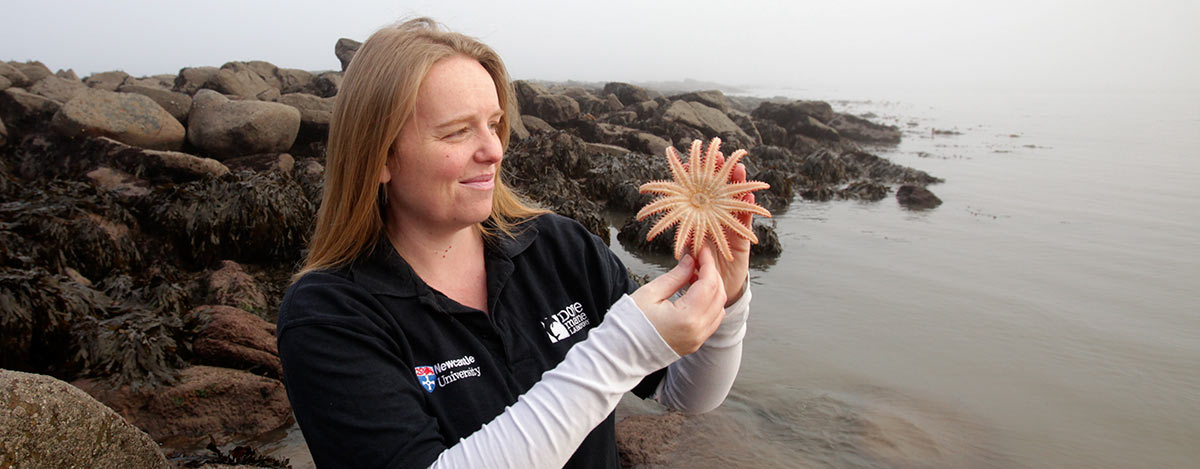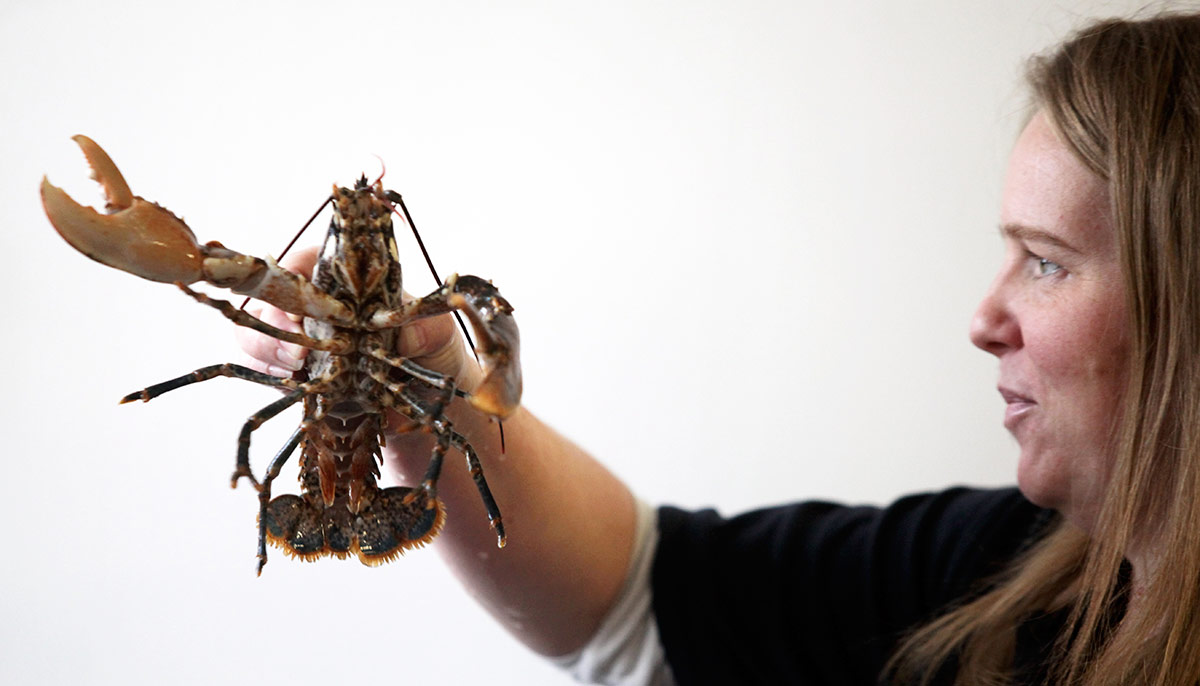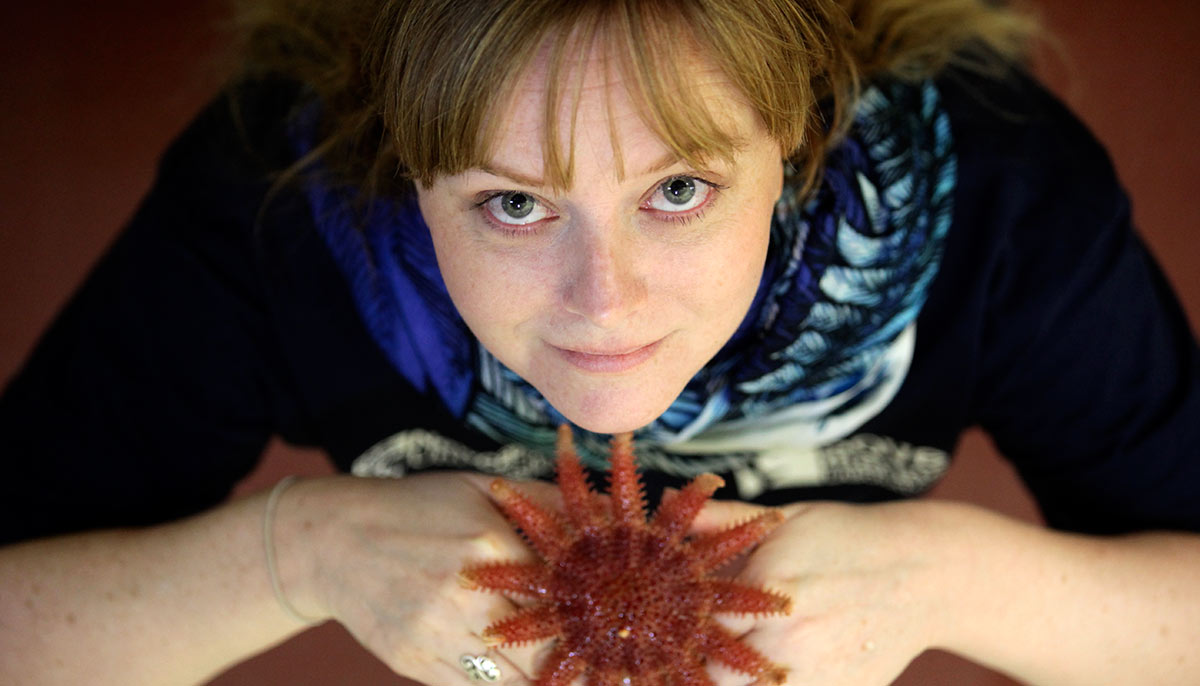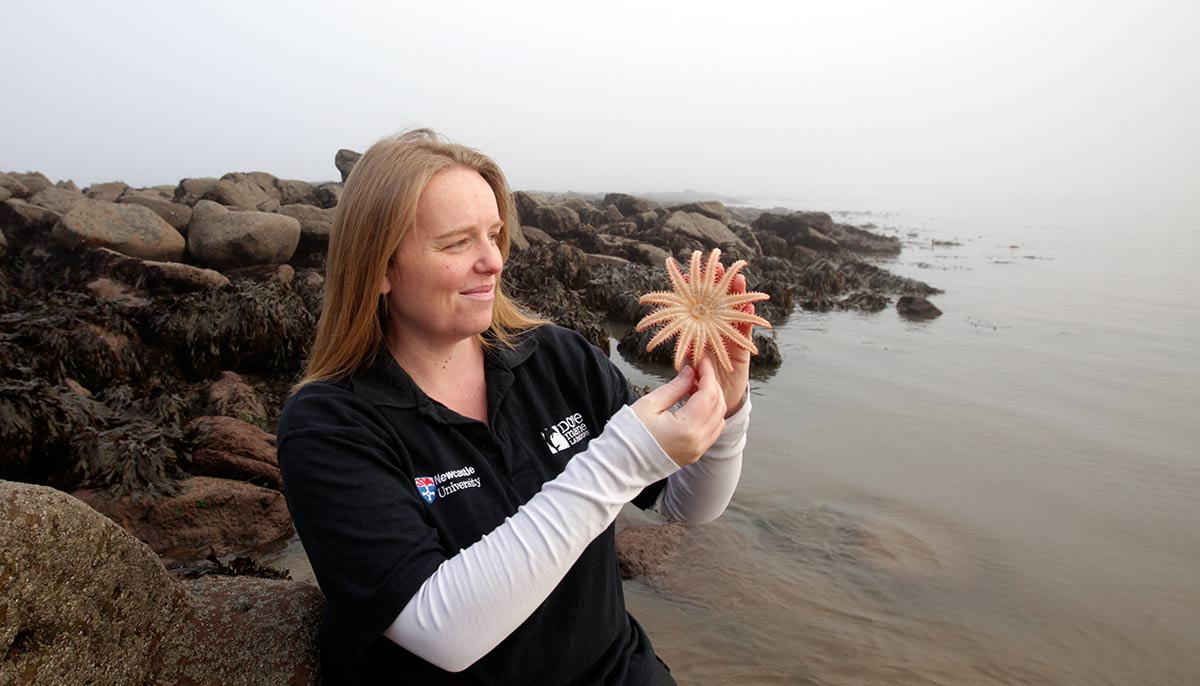Capturing Our Coast
Wanted: Budding scientists to capture our coast
Published on: 12 January 2016
People with a passion for the UK’s coastline are being invited to help make history by being part of the largest coastal marine citizen science project ever undertaken in the UK.
Marine life around the UK
The £1.7m Capturing Our Coast project, funded through the Heritage Lottery Fund, is designed to further our understanding of the abundance and distribution of marine life around the UK.
Officially launching this week, the aim of the project is to recruit and train more than 3,000 volunteers to help build a more accurate picture of the marine life all around the UK.
Collecting data about key indicator species – such as topshells – can provide information about how coastal systems are responding to factors such as increased sea temperatures. The research will help scientists to understand how the marine environment is responding to global climate change and inform future policy and conservation strategies.
Led by Newcastle University, the project is a national collaboration involving Hull, Portsmouth and Bangor universities, the Scottish Association for Marine Science, the Marine Biological Association of the UK and the Marine Conservation Society.
It also involves a number of organisations including Earthwatch Institute, the Natural History Museum, Northumberland Wildlife Trust, the Centre for Environment, Fisheries and Aquaculture Science (Cefas) and the North West Coastal Forum.

Developing a network of citizen scientists
Dr Heather Sugden, Co-Principal Investigator based at Newcastle University, said:“This is the first project of its kind and an exciting opportunity for anyone with a fascination for marine life and a desire to make a real impact on our understanding - and ultimately the protection - of our coastal environment.
“What this project aims to do is develop a network of citizen scientists who can help us build an accurate picture of marine life all around the UK - a baseline against which we can better understand the impact of climate change and other environmental and human factors.
“The data we collect will fill key knowledge gaps such as geographic species distributions, movement of warm water species, and occurrences of invasive non-native species.”
Training and ongoing support will be provided to volunteers by experts in marine science to ensure ongoing interest and high quality data. Capturing our Coast will also be available to those who can’t get out to the shore, with the establishment of web-based citizen science options.
Multiple research publications directly linked to this project are planned, on topics such as how species assemblages are changing due to climate change.
Getting involved
Professor Juliet Brodie, Natural History Museum, said:“I am very excited about Capturing Our Coast. Taking part is such a brilliant opportunity for so many people to get to know the diversity and beauty of the marine algae that are found on our shores and everyone will have the chance to contribute to our scientific understanding of these organisms.”
Dr Kieran Hyder, Cefas, added: “This is a really exciting opportunity for members of the public to get involved in a project that will enhance our understanding of coastal biodiversity and ecological processes.
“Cefas are delighted to be involved in this innovative citizen science project that should provide data and understanding that helps to effectively manage our marine systems and supports development of marine policy.”
Professor Stuart Jenkins, Principal Investigator, Bangor University, said: “This is a fantastic opportunity for the public to get involved in ‘hands on’ marine science on rocky shores and at the same time find out more about the research activities of marine scientists in the UK.
“We aim to build a long lasting relationship with volunteers which we hope will be mutually beneficial. A network of volunteers making sustained observations on rocky shores in Wales, and, through CoCoast, around the UK, is potentially an enormously powerful research tool.”
To get involved or for more information visit Capturing Our Coast website.






